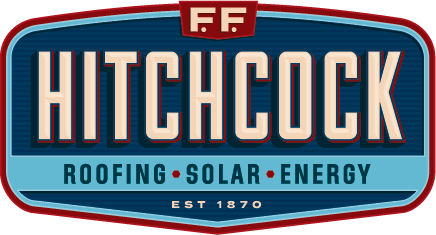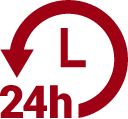Having an energy-efficient home doesn’t mean that you don’t use your HVAC system and other electrical appliances. However, there are steps that you can take to improve your home’s efficiency, which allows you to save money on those monthly utility bills. Learn more about our home energy audits and the benefits they provide.
Understanding Home Energy Audits
When it comes to evaluating home energy use, the main factors are safety, comfort, savings, and sustainability. Home energy audits, also known as residential energy assessments, provide an analysis of your home’s energy consumption to identify specific aspects for improvement. An audit evaluates all the installed equipment that uses electricity and fuel. This includes heating, ventilation, and air conditioning (HVAC) systems, appliances, circuits, devices, controllers, materials, insulation, weatherstripping, and household activities.
Benefits of Residential Energy Assessments
An audit provides an understanding of how your home uses and wastes energy. Based on the evaluation, you can unlock many benefits, starting with monthly savings on your energy bills. This is the benefit most of our customers inquire about; nonetheless, it is not the only benefit.
Issues like drafts, uneven temperatures, and poor ventilation are detrimental to household comfort. When you address these issues through professional solutions, you can increase comfort around your house throughout all seasons.
Concerning safety, our technicians look at issues related to faulty wiring, leaks, or failing equipment that can become hazardous to your household. There’s also the carbon footprint factor; by improving energy efficiency, you would be contributing to environmental protection with lower carbon dioxide (CO2) emissions. Higher efficiency translates into a more responsible consumption of natural resources.
The financial benefits of home energy audits do not stop with lower monthly bills. When you optimize the performance of your HVAC system and other appliances, you can potentially extend their lifespan and reduce the potential of costly repairs.
If you take action on all the recommendations of the audit, you could increase the value of your property while making it more attractive to prospective buyers who specifically look for energy-efficient homes. To this effect, you can keep copies of the audit and receipts of the improvements. You may also take advantage of rebates and credits offered by Eversource and the Internal Revenue Service for specific upgrades such as heat pumps and solar panels.
What Issues Do Home Energy Auditors Look For?
Statistics from the Energy Information Administration indicate that HVAC systems account for more than 40% of total household energy use. For this reason, our technicians focus on HVAC first. Outdated or inefficient HVAC systems often consume far more energy than necessary. Oversized units can cycle on and off too frequently, thus causing inefficiency.
We not only check the condition of the HVAC equipment but also its ratings. We look at the Seasonal Energy Efficiency Ratio (SEER), which divides the cooling output by the energy consumed over a season. A higher SEER rating indicates greater efficiency. For heating systems, we check the Annual Fuel Utilization Efficiency (AFUE) rating, which measures how efficiently a furnace converts fuel into heat. There’s also the Energy Star rating of the Environmental Protection Agency, a trusted mark of energy efficiency. We consider these ratings and compare them to current standards; then, we let you know if the equipment is performing optimally or if it should be upgraded.
Inadequate Insulation in attics, walls, and crawl spaces can be a major source of energy loss. Our technicians check the type of insulation and its R-value, which measures the thickness and density of the material. We also look for damage, gaps, or compressed sections, reducing insulation effectiveness.
If you have a central HVAC system, leaks in the ductwork can waste a significant amount of energy. Instead of distributing cool or warm air into living spaces, leaks will direct air into attics or crawl spaces. Ductwork leaks are mostly caused by cracks. However, loose connections are sometimes to blame in this regard.
Weatherstripping refers to the materials and techniques used to keep the elements out and conditioned air in. Many of our customers are surprised when their audits reveal how much energy is wasted through aging or deficient weatherstripping. Our technicians look for gaps or cracks causing air leaks, which can be on your home’s exterior or inside your living spaces. Doors and windows are not the only elements we inspect; we also look at gaps around pipes, wiring, and the foundation to spot air filtration or infiltration.
Auditing Beyond HVAC Systems
Older appliances can significantly damage your home’s energy efficiency. Our technicians assess the efficiency of refrigerators, washing machines, dryers, dishwashers, and other major appliances. As with HVAC systems, we look for Energy Star certifications that meet energy efficiency standards, and we also check for overall functionality plus aging.
When it comes to residential lighting systems, incandescent light bulbs are far less efficient than new LED options. Our technicians will invariably¿ recommend switching to LED lighting, including outdoor systems for security. In some cases, they may also discuss the benefits of potential daylight strategies.
Water heating accounts for a significant portion of your home’s energy use. We inspect the heating unit’s age, efficiency, and insulation. Our recommendations may extend to installing low-flow showerheads and faucets to reduce hot water consumption.
Modern home energy audits include smart home technology considerations. This can include programmable thermostats for the HVAC system, smart lighting controls, and energy monitoring systems. These technologies can help you to optimize energy usage and further reduce your monthly bills.
Depending on the square footage of your home and the equipment installed, audits may take two to four hours. You can take time to read the report and consider our recommendations. Our technicians will answer all your questions and provide more information. As previously mentioned, many audits recommend weatherstripping, an impressively effective solution available at a low cost. Other recommendations may range from solar panel installations, if feasible, to replacing HVAC systems and appliances.
If your HVAC systems need repairs, we can schedule visits that can be followed with a maintenance plan to prevent future issues. Our Aeroseal duct sealing service is highly recommended to customers who want to avoid future issues with their central HVAC systems. Aeroseal is a patented process that seals the ductwork from the inside out, thus improving efficiency and reducing energy waste by eliminating pinhole or fissure leaks. This innovative sealing can significantly improve airflow and comfort across all living spaces to lower your monthly energy bills.
Learn More About Our Home Energy Audits
Our company history dates back to 1870 when we operated as a general store. These days, we are a family-owned business offering professional HVAC and electrical services with energy conservation solutions for you. If the recommendations of your home energy audit include HVAC system maintenance, repairs, upgrades, or replacement, our skilled technicians can handle them. All the same, our electricians can install new energy-efficient appliances and upgrade your home’s wiring accordingly. Financing for new equipment installation is available on approved credit.
To get more information and schedule a home energy audit, contact F.F. Hitchcock Plumbing, Heating & Cooling in Cheshire today.








